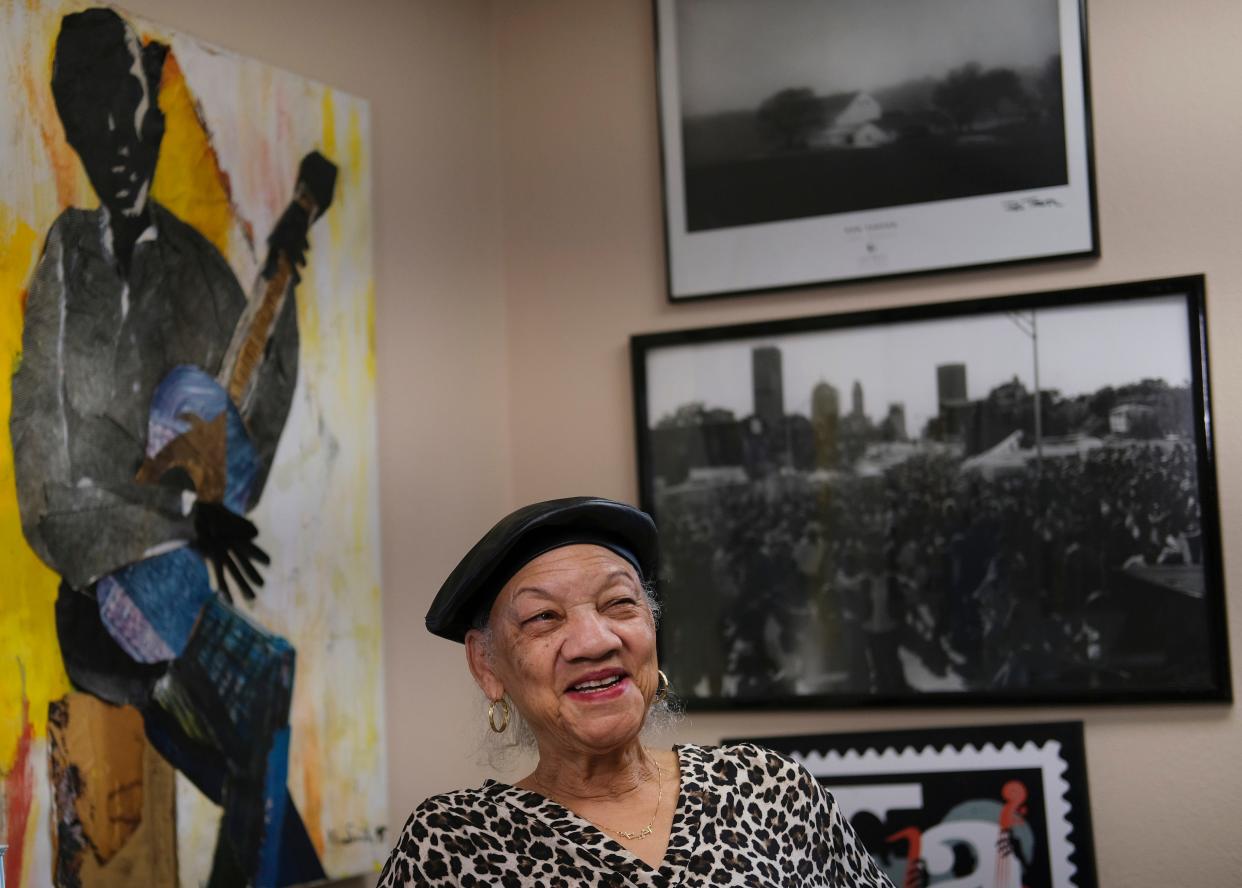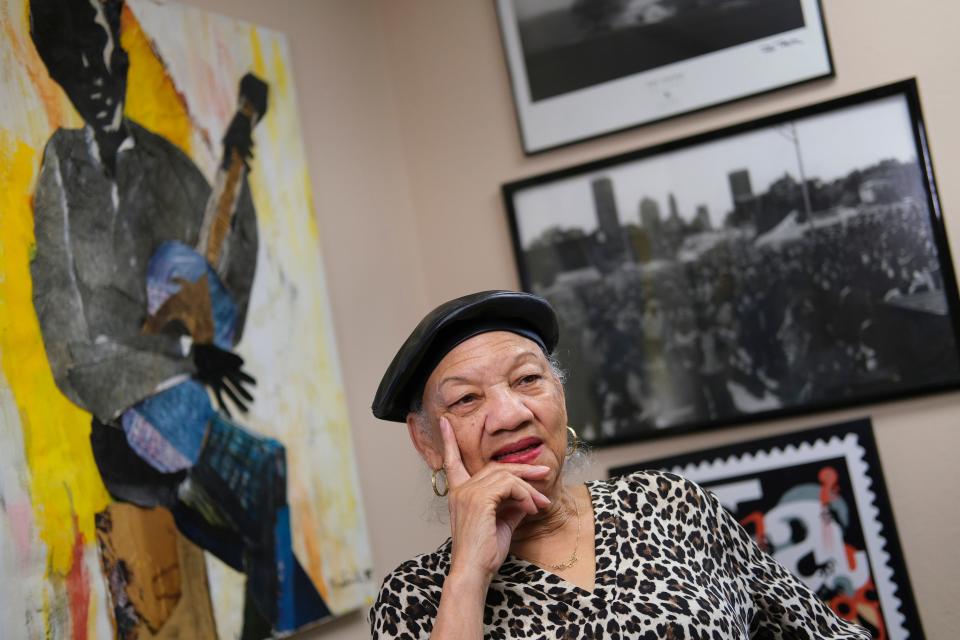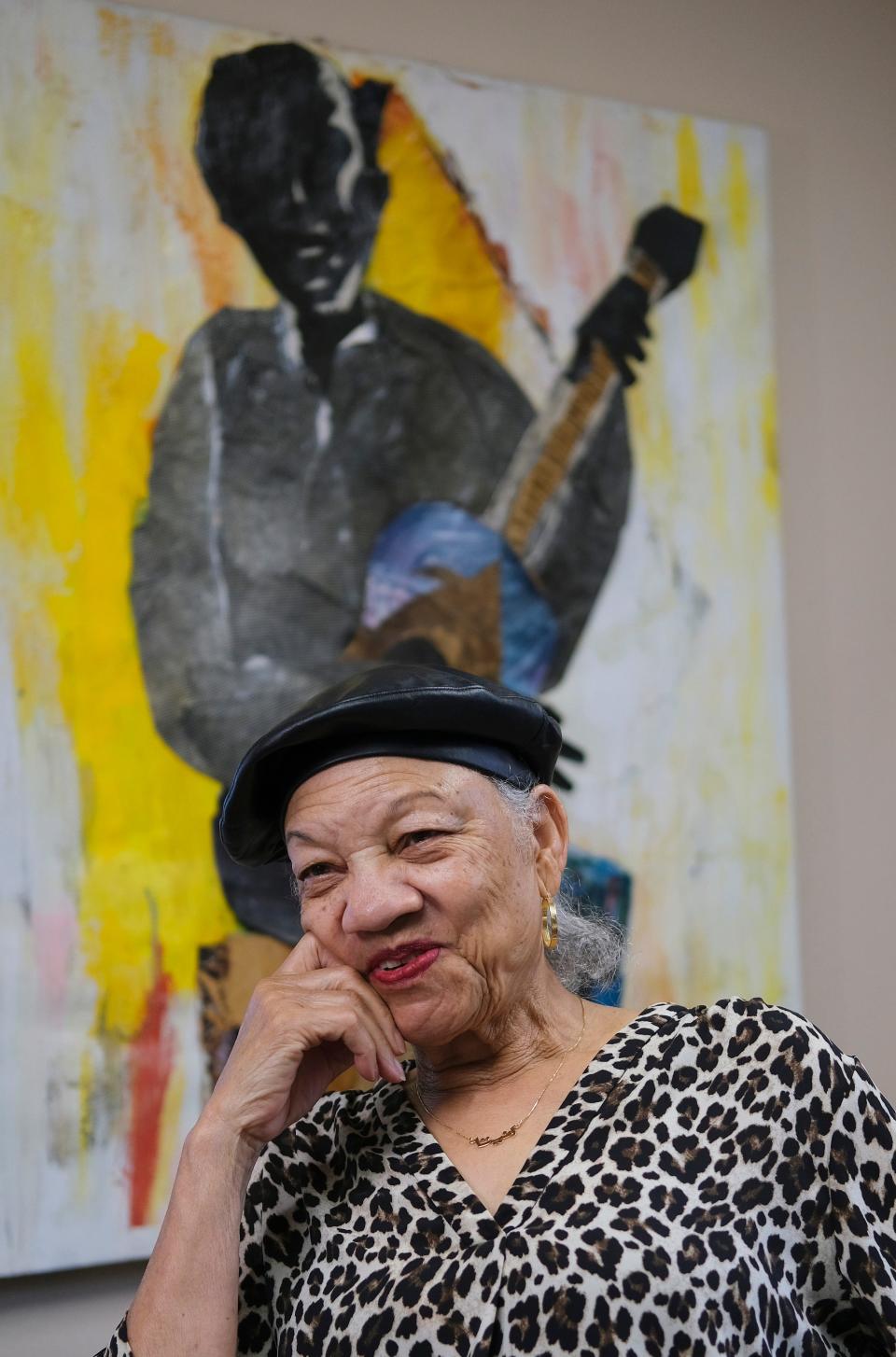This Oklahoman 'kicked open' doors for Black women in STEM: 'I was blazing the path for other people'

Getting to know Anita Arnold is a challenge because she'd rather not talk about herself. She wants you to know about Oklahoma's African American heritage and people like Charlie Christian, the legendary jazz guitarist with the Benny Goodman orchestra. He is "not one of the greatest, he's the greatest musician ever to come out of Oklahoma, African American or otherwise," she says. A large painting representing Christian hangs just behind her desk.
Arnold, 84, animated and outspoken, is executive director of the Black Liberated Arts Center just north of the state Capitol. Formed in 1969, the center's aim is to use the vehicle of fine arts and history to expose the OKC community to African, African American and Black culture. Born on a farm in Tecumseh, she moved to a segregated Oklahoma City in the 1950s and ended up at all-Black Douglass High School — "the best in the city," she says.
After graduation she worked for a time on the assembly line at Western Electric, then a supplier to AT&T.
"I hated it," she said. "I was going to quit and go home."
But then, she said, she got a call from Nathaniel Arnold, then CEO of the Urban League, who was working hard to increase African American employment.
"He said, 'No, no. You have to stay. If it gets tough, you call me. How many times did I call him? Often! He reminded me I was opening the door. I was blazing the path for other people."
More: Songs by 3 iconic Oklahomans selected for National Recording Registry: What you need to know
Arnold soon discovered she had the math skills to do well in the emerging computer technology of the 1960s and '70s. She moved into a management level job with the U.S. Postal Service and then into the executive suite back at AT&T, which in 1982 had been ordered by the government to break up into smaller companies. Arnold was part of the team that worked to ensure African Americans across the country would not be treated unfairly in the reorganization.
"It wasn't going to be one of those 'last in, first out,' situations," she said.
Q: One of those people you helped was Cynthia Marshall, formerly chief diversity officer at AT&T and now CEO of the Dallas Mavericks in the National Basketball Association.
A: My son, Chris, is the voice of the Dallas Mavericks, and when Cynt Marshall got there she told him she wanted to meet me. When I got to the game she was surrounded by reporters, but she broke away and ran over and gave me a great big hug, laid her head on my shoulder and said, "I just want to thank you." I asked her why? And she said, "You were the one who kicked open those doors, big doors, at AT&T, and I went straight through those doors to the top."
Q: You had a chance to live in other parts of the country. You had a great career in the East. What brought you back to Oklahoma?
A: Our heritage. Our culture. There is so much that people don't know. I've written six books myself, and there were things that I didn't know because our history wasn't taught.

Q: Did you find that African Americans had a negative perception of Oklahoma?
A: They think it's terrible about the Greenwood (The Tulsa district decimated in the 1921 Tulsa Race Massacre, often called "the single worst incident of racial violence in American history.") But they're not holding it against Oklahoma. They are curious about these events because they have not been in the history books. They want to know more, particularly when they find out that Oklahoma had the most historically Black towns and once upon a time the dream of having an all-Black state.
Q: You often host groups of African Americans and others who want to learn more about Oklahoma's history.
A: Yes, we're owning our history. It is nothing to be ashamed of. The history of African Americans is rich. Look no further than George Washington Carver. He was just one of many who contributed not only to Oklahoma, but the entire United States.
Q: If a young African American family asked you, "Is Oklahoma a good place to live?" Would you recommend it?
A: I would, by and large. You have to pick and choose. The culture here in Oklahoma is different than it is in other places I've lived.
Q: How do you mean?
A: We have a tendency here in Oklahoma to let sleeping dogs lie. Even African Americans here have been basically nonviolent people. The closest you came to a protest was probably when Mrs. (Clara) Luper did the sit-in at the drugstore.
Q: Do you feel more activism would be productive?
A: There are more doors to kick open, but that's a scary thing to some folks. To this day, there's a hesitancy to some in saying the name of this center, the Black Liberated Arts Center.
Q: It seems to me there is some hesitancy to mention BLAC's role — and your role — in kick-starting the professional development partnership between OKC's Wilson Elementary School and the John F. Kennedy Center for the Performing Arts in Washington, D.C. On the arts foundation website featuring the school and its partnership BLAC gets one mention as one of the partners.
A: Margaret Simpson is the principal over there (at Wilson), and she's been wonderful about our being a partner, really a partner. One of the board members, I won't mention a name, said "What has BLAC got to do with it." And she said, "Everything. If it hadn't been for the Black Liberated Art Center, we wouldn't be in this partnership." There have been efforts to raise questions about my leadership with the program, and they have gone to the Kennedy center with that, and the Kennedy Center has said, "We're fine with Anita."

Q: You mentioned Charlie Christian and encouraged us to listen to his song "Solo Flight" with Benny Goodman. Who are other African American artists in Oklahoma we should get to know?
A: Lawrence Naff, he's an artist who works with stones. He's got one called "White Flight," which is really a story about what happened in Oklahoma City when the African American population started growing. And then there's Taylor Deneen, a singer. She was on the stages of the Black Arts Center as a child growing up and made the playoffs on "The Voice."
This article originally appeared on Oklahoman: Oklahoman opened doors for Dallas Mavericks CEO, Black women in STEM
